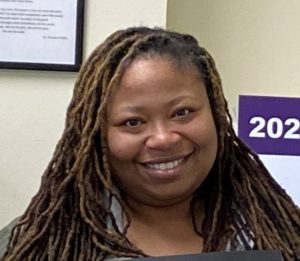Home Care
When last year’s pandemic struck, many were distressed to see how the most vulnerable of our communities were being impacted- especially seniors. Both staff and patients in nursing homes and residential care facilities were some of the hardest hit, which led to concerns about safety and highlighted the importance of vigilance in congregate care. Home care was viewed not only as a viable option, but for some families, it seemed to be the safest way for their loved ones to receive the care they needed.
Seema Verma, an administrator for Centers for Medicare & Medicaid Services (CMS) shares, “Residential care will always be an essential part of the care continuum, but our goal must always be to give options that help keep our loved ones in their own homes and communities for as long as possible.”
The shift towards home care is not a new trend-it has been steadily growing in popularity, with many seniors preferring to have services come to them in the comfort of their own home. With statistics showing the high rates of transmission of COVID within residential facilities, many families are justifiably concerned about placing their loved ones in a congregate care setting. It also does not help that once placed in care, State and Federal visitation rules may come into effect, therefore limiting who can visit, if anyone at all. This makes for a very isolating experience, particularly for those in the aging population- the fastest-growing demographic in the US.
According to Mark Tomzak the EVP and general manager for PointClickCare, this pattern is not surprising. He states, “Seniors have always had a preference for receiving care in-home over the options of skilled nursing facilities (SNFs) or hospitals. This has increased the demand for SNF-at-Home and Hospital-at-Home care models…so the infrastructure must follow.”
One of the biggest advantages of home care, besides being surrounded by the comforts of home and loved ones, is the mitigation of infection zones and unsafe points of contact, compared with those in group home settings. Professional Caregivers can take their time to promote good hygiene practices and, in turn, enable the people they support to keep up the good work. The fears of cross-contamination are less, and in the cases where loved ones are around to help, seniors feel supported and looked after. Also, many home care providers are encouraging their staff to be vaccinated and are requiring regular testing (for example, Avila Home Care requires weekly testing of its Caregivers)- another step in the right direction towards protecting the vulnerable and ensuring that preventative methods are a priority. The AARP has even created a comprehensive list of what to ask and expect when considering home care during the pandemic.
Despite the number of COVID cases decreasing in nursing homes and assisted living, the home care trend has continued to accelerate with agencies such as Avila Home Care experiencing a greater demand for Caregivers. This industry is clearly thriving and predictions show that it will continue to evolve to meet the needs of seniors and their families. William A. Dombi, president of the National Association for Home Care & Hospice (NAHC) says it best, “Other health care sectors have joined the overall transformation in prioritizing community-based care for acute, post-acute and end-of-life services. As a result, new models of home care continue to emerge along with new types of care providers.”
Avila Home Care serves the greater Baltimore metropolitan area, providing care to seniors in whatever setting they call home- in their own home, assisted living, or in-patient hospice. Avila is the preferred Home Care Partner for the Greater Baltimore Medical Center (GBMC), LifeBridge Health Partners, Gilchrist, and Springwell and Brightwood senior living communities. With over 400 Caregivers, Avila thoughtfully matches each client with a Caregivers who is best suited to their needs based upon a free in-home assessment by one of Avila’s experienced nurses. Avila will create a customized care plan with a flexible schedule and no long-term commitment. Whether you or your loved one simply needs a couple of hours of help a week, or 24/7 care, Avila will be with you every step of the way. To find out more, visit us at https://avilahomecare.com.
4 Tips for Seniors to Stay Connected During Coronavirus Outbreak
Our Avila Home Care team is here to support you and your family during this challenging time! Avila’s admin staff is working remotely around the clock to ensure that our caregivers are available at a moment’s notice if needed. Avila’s caregivers have been trained in rigorous sanitizing and health safety measures, and have permission to…
Read More...Where Can Seniors Stay Active in the Baltimore Area?
From the Baltimore County Department of Aging’s fitness centers, exercise classes and health and wellness programs, to local YMCAs, there are many easily accessible and affordable programs to help you or your loved one stay physically active no matter your mobility level. If you’re up for a game of tennis, or would like to take…
Read More...Shamira Saxon is Avila’s Caregiver of the Month for January, 2021!
Shamira Saxon is Avila’s Caregiver of the Month for January, 2021! Shamira (Myra) exudes passion and joy while caring for her clients. She is delightful in her demeanor, and is always willing to step in and help- going the extra mile with her service. Even once clients are no longer in her care, Shamira continues…
Read More...

